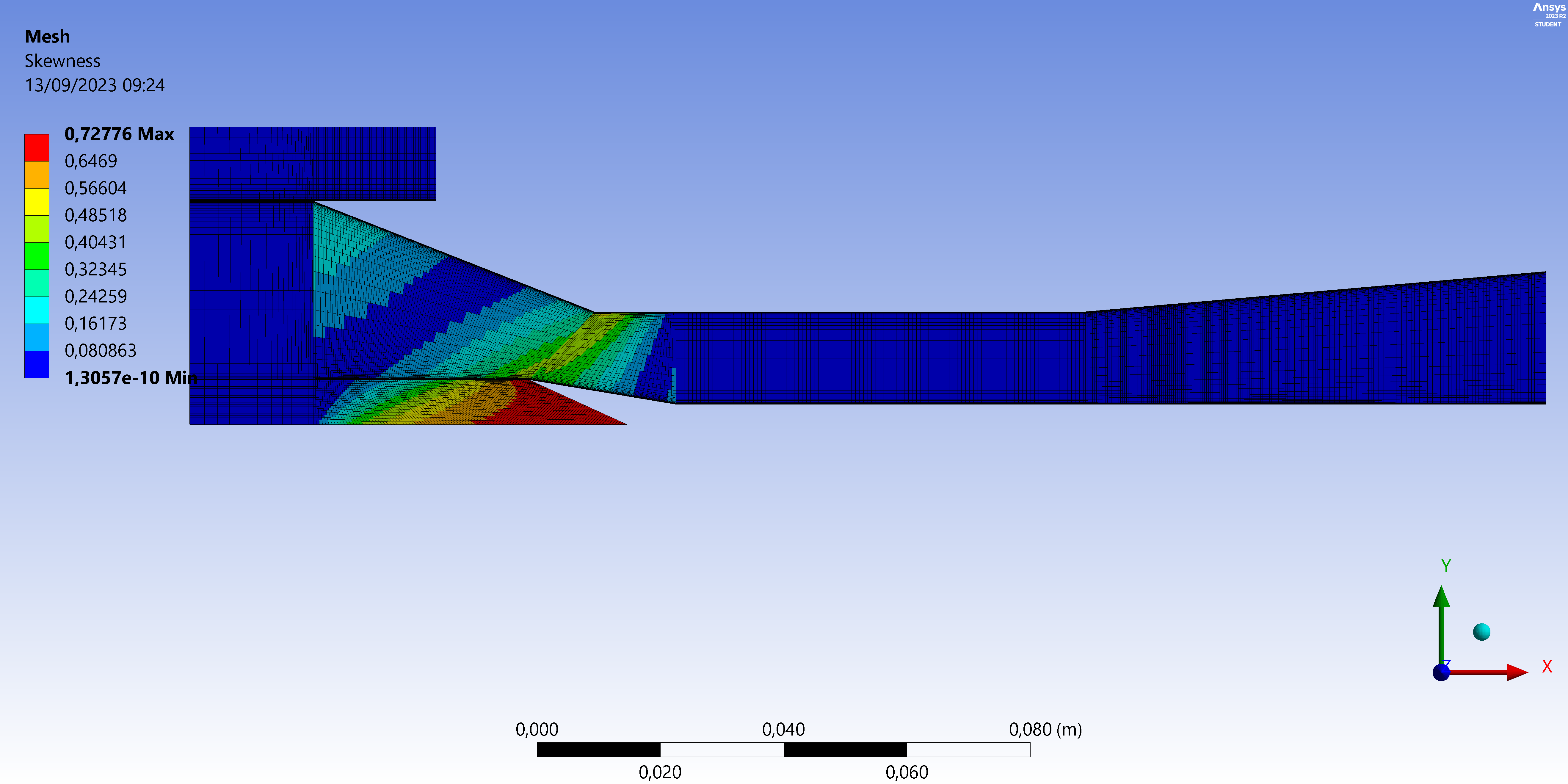TAGGED: -Structured-Meshing, 2d-mesh, intake, meshing, supersonic-flow, yplus
-
-
September 13, 2023 at 7:40 am
felice_lucivero
SubscriberHello everybody,
I am trying to simulate a supersonic flow through an air intake, here is the geometry and mesh I ended up with:
I have two main issue:
- the wall yplus is very high. I tried then to introduce a certain bias for the edges in order to concentrate the most of the cells close to the wall, but it looks like this procedure has been stopped (that means even though I increase the bias factor, the grid size is no more updated). How can I concentrate more cells near to the wall and reduce their size (in order to get yplus around 1)?
- the skewness for the cells close to the cowl lip (the red cells in the image). Do you have any suggestion on how to improve the quality of those elements?
-
September 13, 2023 at 8:28 am
SRP
Ansys EmployeeHi,
High Y+ values can affect the accuracy of your simulations, especially in cases where you need to capture near-wall flow behavior. To reduce Y+ values to around 1, you should aim for a finer mesh near the wall. Instead of bias, try for manual meshing near the wall.
-
September 13, 2023 at 8:31 am
felice_lucivero
SubscriberYou mean inflation option?
The issue with that is I cannot introduce a face meshing then. On the contrary, I would like to end up with a structured mesh.
Thank you.
-
-
September 13, 2023 at 8:36 am
SRP
Ansys EmployeeHi,
Yes inflation layer.
Can you please have a look at Ansys innovation course: Mesh — Lesson 4 - ANSYS Innovation Courses
Hope it will help you since it studies the supersonic flow.
-
September 13, 2023 at 12:09 pm
felice_lucivero
SubscriberThank you for replying,
to be honest, I didn't get your point.
The geometry reported in the link you suggest looks simpler than mine (the grid is very coarse too).
Besides this, there is no reference to the inflation layer option; btw for what I know face meshing and inflation layer option cannot be applied at the same time.
-
-
September 13, 2023 at 3:15 pm
Rob
Forum ModeratorPart of your problem may be how you've meshed the various surfaces that make up the domain. With a structured (map) mesh you're going to see bands of excessively fine mesh with very high aspect ratio in places you really don't want it.
You may want to review pave options and/or your approach to meshing.
-
September 13, 2023 at 3:41 pm
felice_lucivero
SubscriberThank you Rob.
How do you suggest to do that?
I split my geometry in different portion in Spaceclaim.
I defined a certain number of elements for each and every edge of the domain and then I applied the face meshing for each face in Ansys Meshing.
-
-
September 13, 2023 at 3:55 pm
Rob
Forum ModeratorSetting too many constraints can cause problems as the cell size & size smoothing conflicts with the edge sizing. Getting inflation mesh around reflex angles as you near & exceed 270 degrees tends to become difficult.
You're kind of on the right track with the surface decomposition, but you've focussed on getting a block mesh and not on how to help the inflation mesh whilst also accounting for shocks and separation. I can't tell you how to do this as it's getting into the "engineering knowledge" domain; I can suggest having a look at some of the older methods we used for mesh decomposition (O-grid and butterfly mesh) for some ideas. The other option is pave and an awful lot of adaption.
-
- The topic ‘2D supersonic inlet – Meshing’ is closed to new replies.



-
4618
-
1530
-
1386
-
1209
-
1021

© 2025 Copyright ANSYS, Inc. All rights reserved.








